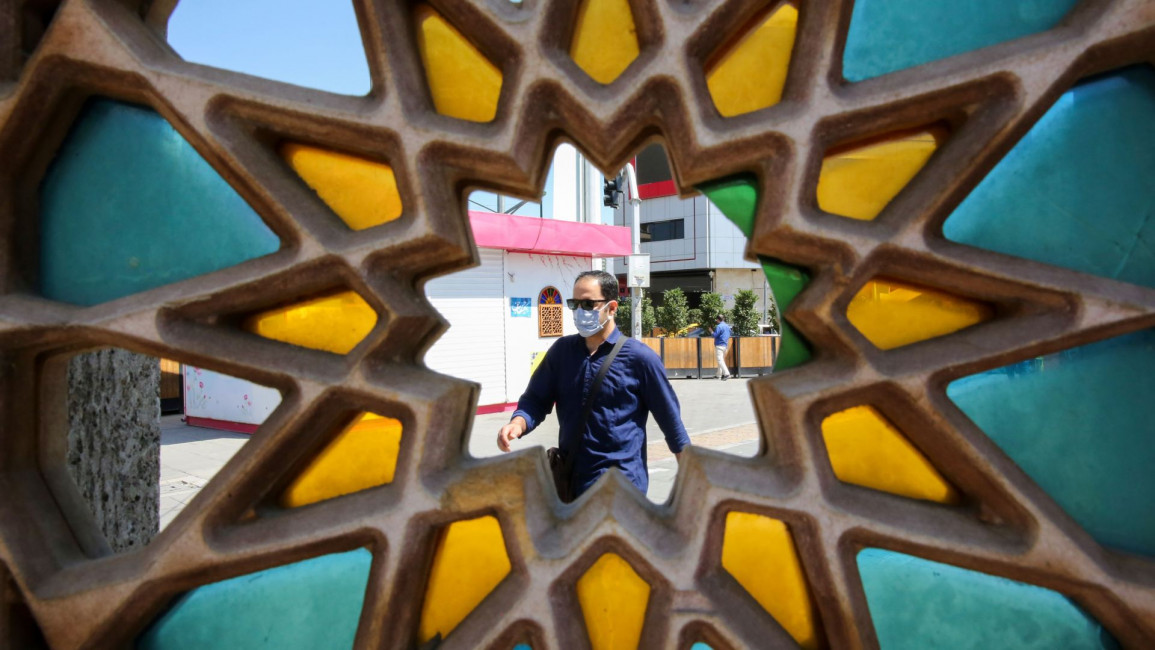UN set for showdown over US Iran arms embargo push
The UN Security Council is set next week to roundly reject a US resolution to extend an Iranian arms embargo, diplomats say, setting up a lengthy showdown with repercussions for the Iran nuclear deal.
Secretary of State Mike Pompeo announced on Wednesday that the United States would put forward its long-awaited resolution despite ardent opposition from Russia and China.
But UN diplomats say opposition to the resolution's current form is so widespread that Washington is unlikely even to secure the nine votes required to force Moscow and Beijing to wield their vetoes.
"The resolution takes a maximalist position on Iran," one diplomat told AFP.
Another said the draft "goes beyond the current provisions" of the ban on conventional weapons sales to Iran that ends on October 18.
The embargo is due to expire under the terms of a resolution that blessed the Iran nuclear deal, signed in July 2015 and officially known as the Joint Comprehensive Plan of Action (JCPOA).
Under the deal, negotiated by then US President Barack Obama, Iran committed to curtailing its nuclear activities for sanctions relief and other benefits.
|
||
President Donald Trump pulled America out of the accord in May 2018 and slapped unilateral sanctions on Iran under a campaign of "maximum pressure."
Iran has since taken small but escalating steps away from compliance with the nuclear accord as it presses for sanctions relief.
European allies of the United States -- who along with Russia and China, signed the deal with Iran -- have voiced support for extending the conventional arms embargo but their priority is to preserve the JCPOA.
The US text, seen by AFP, effectively calls for an indefinite extension of the embargo on Iran and uses hawkish rhetoric.
Diplomats fear the resolution threatens the nuclear agreement. Iran says it has the right to self-defense and that a continuation of the ban would mean an end to the nuclear deal.
"The focus should remain on preserving the JCPOA," a third diplomat told AFP.
"It is the only way to provide assurances about the exclusively peaceful nature of Iran's nuclear program. No credible alternative to this instrument has ever been proposed since the US withdrawal," they added.
Experts say the gulf between the US and its allies threatens a summer of discontent at the Security Council as the October 18 deadline approaches.
Torpedo nuclear deal?
"This is a car crash that everyone knows is going to happen," New York-based UN expert Richard Gowan told AFP, describing the US draft as a "poison pill of a text."
UN-watchers suggest that EU countries on the Council could be brought on-board by a short-term extension of the embargo if it helps preserve the nuclear deal.
Or members may propose their own draft resolution, but finding consensus is likely to be difficult with China and Russia intending to veto.
The United States has threatened to try to force a return of UN sanctions if it is not extended by using a controversial technique called "snapback."
Pompeo has offered the contested argument that the United States remains a "participant" in the nuclear accord as it was listed in the 2015 resolution -- and therefore can force a return to sanctions if it sees Iran as being in violation of its terms.
He points to Iranian support to Yemen's Huthi rebels, who are under assault from US ally Saudi Arabia, as an example of an arms violation and has expressed alarm at indications that China is already preparing arms sales to Iran upon the embargo's expiry.
European allies have been skeptical on whether Washington can force sanctions and warn that the attempt may delegitimize the Security Council.
Kelly Craft, the US Ambassador to the UN, told journalists Thursday that Washington's first objective was an extension but it is prepared to use "all tools available."
A push for snapback "seems very likely," according to Gowan, of the International Crisis Group think-tank.
"At worst that could torpedo the nuclear deal once and for all, which may be what Pompeo wants.
"This could be a mess in terms of Council politics parallel to that over Iraq in 2003," he said.
Follow us on Facebook, Twitter and Instagram to stay connected



